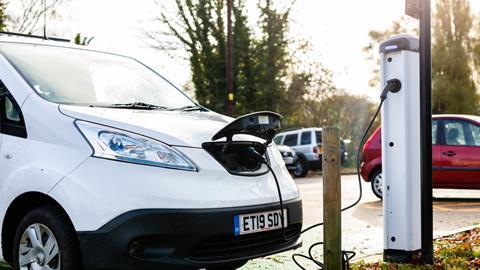As the general election approaches, there is a “glaring” lack of pledges in the main parties’ manifestos on creating a charging infrastructure for commercial vehicles, tackling road safety and improving the UK’s road network, the MD of decarbonisation expert Lightfoot said this week.
Lightfoot MD Paul Hollick is calling for the UK’s new government to commit to building a charging infrastructure fit for commercial vehicles, as well as tackling road safety and implementing a road network improvement programme.
Hollick said road safety is a “glaring omission” from the manifestos of all three main political parties, as well as specifics on charging networks and on how the parties intend to improve the UK’s road network.
Whilst all three main parties have committed to more action on the electric vehicle transition, including the restoration of the 2030 deadline for phasing out petrol and diesel cars by Labour and the Lib Dems (who also included small vans), Hollick said they mainly talked in general terms about rolling out more chargers.
He argued that while electric car drivers are fairly well supported by the public charging network, much more needs to be done for commercial drivers. “Van drivers rely on the public charging network far more than car drivers, and so there needs to be easily available, affordable, spacious, fast and reliable charging for the purpose of getting vans and trucks back on the road quickly,” he said.
“A new government will have to deal with Britain’s chronic productivity problem: helping to ensure enough space in bays, awareness that vans can use them, and even simple measures like longer cables, alongside more streamlined planning consent, more incentives and better infrastructure support should be some of the levers for improving UK PLC’s productivity.
“Our data shows that electric vans driven well and charged quickly can be hugely beneficial for a business, but other businesses are finding the reverse can be true, in that some drivers can take advantage of the perceived problems of range and charging to manage the working day to their advantage. A nationwide charging network that enables this will help improve this situation.”
He added: ”The last few years have seen legislation around various elements of professional driving watered down in the name of cutting red tape and operational expediency, and while nobody wants needless bureaucracy, we want to see a holistic package of measures that provide fleets with all the tools to improve and enshrine safety, training, towing, licences, fitness to drive and compliance.”
On the issue of road safety Hollick said: ”Improving road safety should be a non-negotiable, and culture is created from the top, so let’s see the next government set the tone.”
Hollick welcomed the commitment from Labour and the Conservatives to solve the problem of potholes, but added there has been a lot of talk about this issue for years, with little obvious change.
He said: “At Lightfoot, we can help employees to drive more safely and economically. But the scourge of potholes and the constant chaos they cause to fleets stops businesses from working, and costs the country millions.
“Instead of just pushing funding around from one pot to another to make it look like more has been spent on solving the problem, we want to see the next government commit to ensuring our roads are in the best condition they can possibly be.”

















